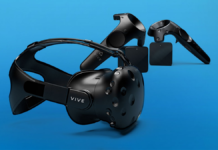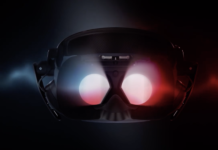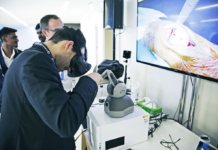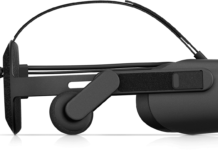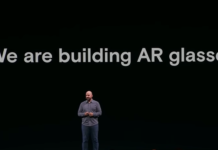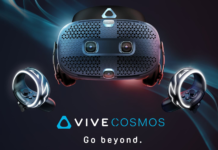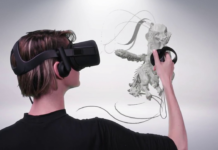FundamentalVR is a company that is hoping to bring the next generation of surgeon training to the medical industry through VR. The company has recently finished their first series of investments, and they raised a staggering $5.6 million to further develop their surgeon training and data analysis programs.
The investments weren’t coming from a Kickstarter, but rather from some of the largest tech and medical companies in the world. Downing Ventures, Epic Private Equity, and Brighteyes Ventures were some of the bigger investors in this process. As for some of the bigger medical giants, the world-famous Mayo Clinic and Sana Kliniken were both large factors of getting their first round of investments as high as they were.
If you include the first unofficial round of investments for this company, their totals are in the range of $9.3 million. FundamentalVR has also had a previous partnership with Mayo Clinic by providing a training system for surgeons and clinical practitioners. The company also included a chuck of 3D modeling, advanced surgeon data, and simulation specialists at steady during all uses.
Fundamental Surgery, the companies most popular product and simulation, has made its rounds across the world. They are currently running in seven different countries, as the Mayo Clinic and UCLA Medical in the United States, Sana in Germany, and UCLH in the United Kingdom. This first version has been focused on the orthopedic disciplines of surgeons, but that is sure to change with this newest round of investments, giving the company some room to operate with a new-found budget.
“We identified early on that FundamentalVR’s team was developing a platform that was very special,” Tern CEO, Al Sisto said. “A training and data analysis offering which could revolutionize the skills development of surgical practice, while at the same time creating a database of significant importance to the industry. We are delighted that the value and relevance of this exciting business and its entire staff has been recognized by this outstanding syndicate of new investors we helped solidify.”
Most people familiar with the newest virtual and augmented technology are convinced of the role they are going to be playing in the future going forward. Some think it will be AR, some think it will be exclusively VR, but we believe that it will be a solid mix going forward. Neither will advance without the other, so they will continue to be helpful going forward.
For training purposed, virtual reality is the way to go. Augmented reality cannot simulate the entire environment of a surgery, but virtual reality can. If you have yet to be in an operating room, you will be blown away by the sense of realism that a virtual headset can give you. The OR might seem like a foreign place to many the first time they step in, but with the help of virtual reality and good simulations, many people are going to be at ease their first time operating on a patient.
As for augmented reality, this is going to be an incredibly helpful tool going forward. Like most things that require great focus and memorization, a nice set of AR glasses can help. If you are in the OR and you need a refresher on your order of operations or your pre-op notes, the glasses can be tremendous help. If neither of those are appealing to you, having a clock in your view at all times and your patient’s vitals always in the top right of your view is going to help many. This tech isn’t all the way developed yet, but with the help of companies like FundamentalVR, we will see new ways to operate in the near future.




